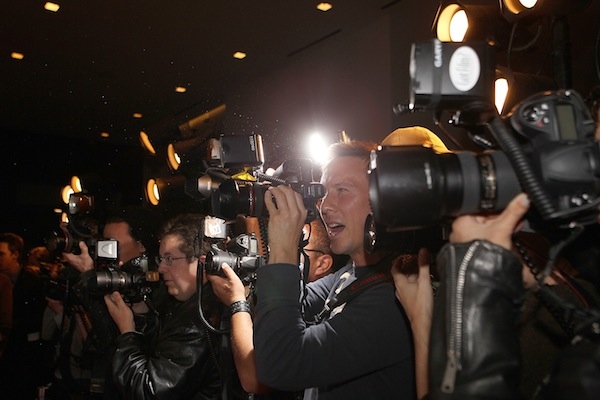A few years ago, I answered an advertisement on a flat-sharing website and ended up living with a fledgling pop star — I’ll call him Sam. He was not long out of adolescence, and was gnawed at by his need for recognition. For years, he and his bandmates had been plastering the internet with tracks, hoping to attract attention, but without much luck.
When I moved in, I was dimly aware that my new flatmate sang, but I didn’t own a TV, so what little coverage they’d received had passed me by. I imagined them performing in dismal, carpeted pubs on the North Circular and getting the bus home.
Then, one Saturday afternoon not long after I moved in, I went to get my hair cut. While my head was being scrubbed, I opened the magazine I’d picked up on the way to the basin and there, on my lap, was Sam, styled like James Dean with shadow obscuring most of his face. The accompanying text revealed that the first single from his band’s latest album — their loudest, shiniest, most commercial effort to date — was soon to be released. Could this, the writer wondered, be the one that propelled them into the public eye?
Shortly afterwards the single came out, and went straight into the Top 10. Suddenly, I couldn’t walk into a newsagent or get a cab without hearing its jump-around chorus thumping out of speakers. The lyrics called out to teenagers lolling on the scorched grass in suburban parks, and Sam became what every teenager thinks they want to be: famous.
Fan mail started arriving for him by the kilo, written in glittery ink that smelled of strawberries. His Twitter account was besieged by strangers, attracting new followers at a rate of something like one every nine minutes. Someone got hold of his address and turned up at the door pretending to be delivering a pizza.
‘Celebrity,’ wrote John Updike in his memoirs, ‘is a mask that eats into the face. As soon as one is aware of being somebody […] the performer goes blind and deaf in his over-animation. One can either see or be seen.’ With every week that passed, Sam behaved more strangely. He smiled and laughed self-consciously, as though there were a camera in front of him. Quite often there was, snapping away at him while he was eating a burger or chatting on the phone. His admirers hoarded autographed scraps of paper and displayed them on their bedroom walls. His voice was sampled by amateur DJs, and bloggers uploaded video clips of him to their sites.
As these snippets of Sam crisscrossed the country, the movements of the real Sam became more and more restricted. If he went shopping during the day he was soon ambushed, so he hung around the flat until dark. He ordered a lot of takeaways, and a man with scissors came to the flat to cut his hair in the kitchen. Whenever I asked him how his day had been, more often than not he’d simply shrug. The majority of his time seemed to be spent slumped on the sofa in a kind of limbo, waiting. Waiting for a car to pick him up and take him to a booking, waiting for interviewers to phone him, waiting for the moment when he could walk on to a stage and believe, for just an hour or so, that he’d got what he wanted. At home he mooched around like a bored child.
Fame has side effects, some of them better documented than others. We take it for granted that a celebrity’s life must be lonely sometimes: far from home in an echoing apartment full of expensive art. But what Sam’s success helped me realise is that a life lived in the public eye might also be one in which nothing much — or nothing much of value, at any rate — happens. The promise made by the talent shows, and by the endless drip-feed of celebrity stories online, is that becoming a star will enrich your existence, turning each day into a kaleidoscopic merry-go-round. But from what I’ve seen, it does the opposite.
After I’d spent a year living with Sam, a friend from university asked me to move in with him and I accepted. On my first afternoon in my new home, I idly watched an episode of The X Factor. One of the thousands of hopefuls was being interviewed in the queue for the venue. ‘I want to be huge,’ she burbled, ‘to have the whole world know who I am.’ I turned the television off and thought of Sam, hunched over his computer in an empty flat, waiting for darkness to fall.






Comments